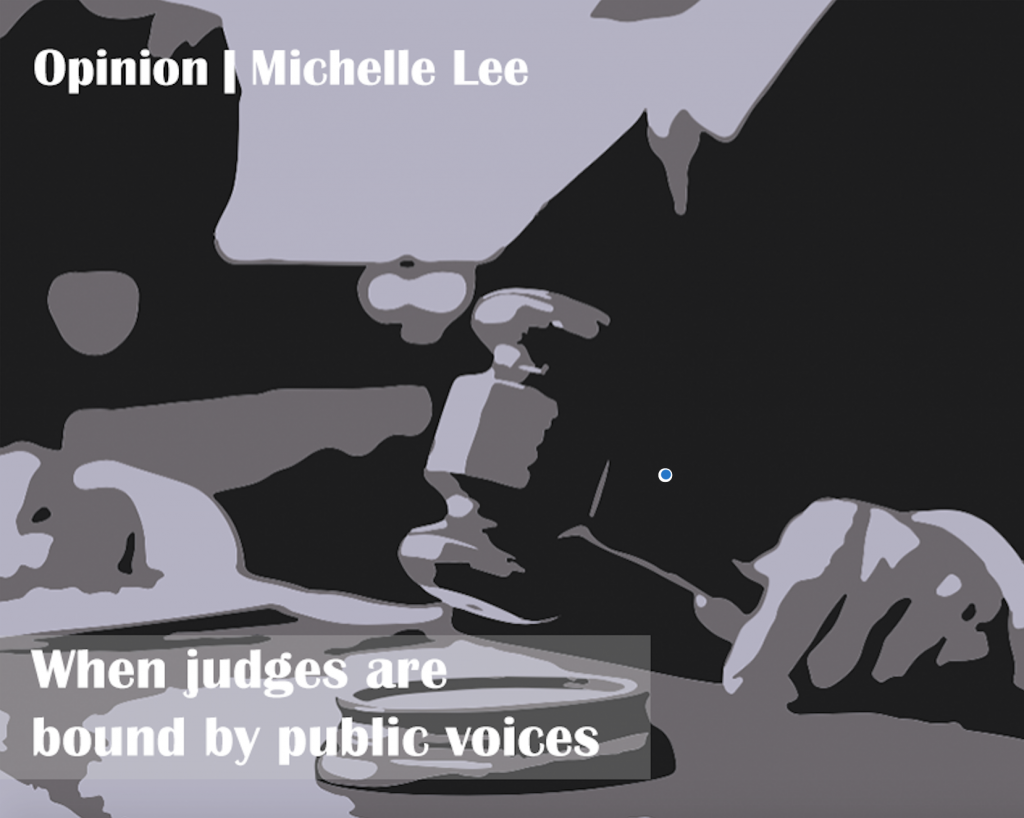Fortunately, we do not live in the kind of society featured in “1984,” where Big Brother monitors every little movement of an individual to make sure that everyone is in support of the leader. In fact, the modern US government grants citizens a significant amount of rights, even to the extent that they have the right to express political discontent towards a president. But while such freedoms are given, the most basic right to expression is limited for certain positions, as judges live under the constant monitoring of the public. Specifically, the societal trend reflects one where it favors judiciary independence, or the idea that they should stay away from other branches of government, and is deemed “immoral” for judges to express political favors.
The recent controversy on Justice Ruth Bader Ginsburg having called Donald Trump a “faker” and deeming his presidency “impossible” sparked a greater question of whether Supreme Court justices should be able to express a certain degree of opinion in an election. Although her commentary was nothing “new” to society, the reaction that Ginsburg has been getting express public concern. To be fair, the satirical opinion was directed toward Donald Trump, and whoever says anything about him can take a pass and be excused, no?
Apparently not. According to CNN news, the consequences that Ginsburg is about to face are much more severe than any of us expected, as holding the position of a Supreme Court justice holds a lot more responsibility than anyone else. Then again, it seems to be quite unfair—that an ordinary office worker may be praised on Twitter for shaming Trump with his unreasonable policies, and a justice speaking out on the absurdness of his campaign is threatened of losing her job.
So what is it about a judge or court member that forbids them to take part in a political election and why does society demand an independent judiciary anyway? Arguably, the importance of judges keeping their political opinions hidden stretches to all the future cases that they may deal with in the future, as even the slightest bit of bias may be considered unfair in a civil courtroom. But the real reason in why most judges feel restricted in voicing out their political opinion is due to public sentiments on how judges “should” act. They voluntarily comply with set social norms and hence, we can conclude that Justice Ginsburg indeed took a risky step when she chose to express her political preferences. While the constitutional lines between what judges, political candidates, or members of Congress can do may not be entirely clear, the public tends to believe that such lines do – or should – exist, and that judges must be very cautious not to cross them.
Let us be clear. Justice Ginsberg violated no federal law and still has the right to hold her place in office. Nothing in the Constitution actually restricts political commentary for judges, or for Supreme Court Justices. If the restrictions to the First Amendment were to actually exist, the limitation would come if their opinion affected a certain lawsuit or decision. The myth that a judge opening up is unconstitutional or harmful to a democracy is not necessary true. Especially at this point, most of us find it obvious as to who favors which candidate as their policies and tactics have been at opposite ends of the spectrum; so is it really necessary to scrutinize one for arguing against the insensitive remarks of Trump? Public concern exists over almost any issue, and this should not be enough to alter constitutional laws restricting individual liberties—let Ginsburg speak her mind.

